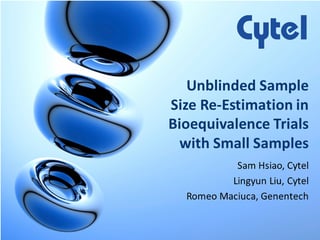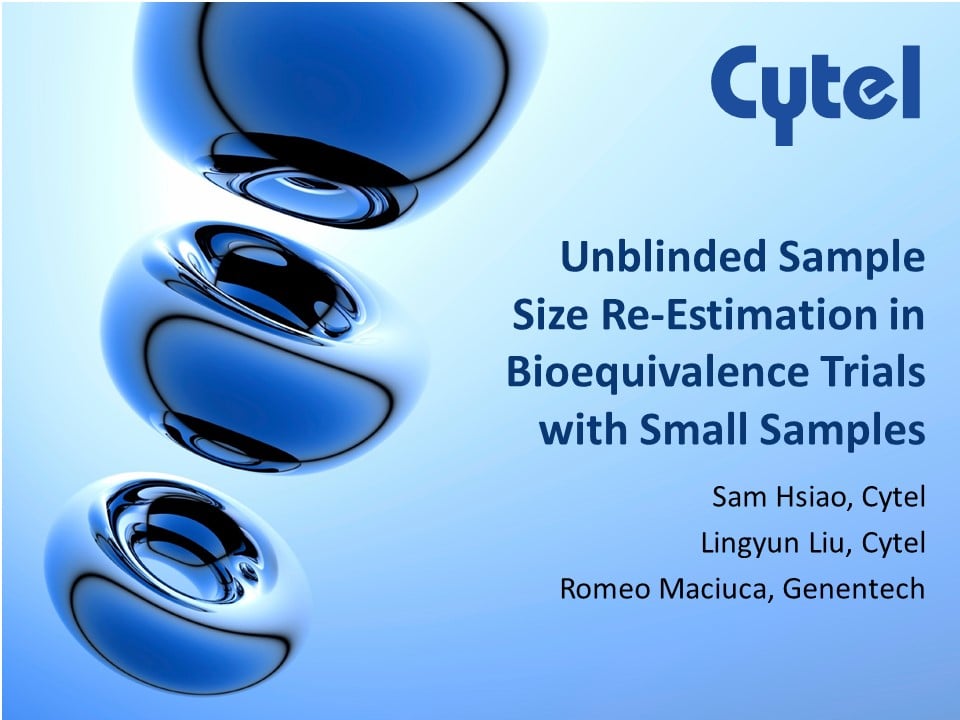
At the recent JSM in Chicago, Cytel’s Sam Hsaio and Lingyun Liu alongside Genentech's Romeo Maciuca, presented a framework for inference in adaptive bioequivalence trials with unblinded sample size re-estimation.
The Problem
In bioequivalence trials where the variance is often unknown, and the sample size small, using boundaries derived under the assumption of a normally distributed test statistic may lead to type I error inflation. This problem can be overcome with p-value combination methods, however these approaches generally do not directly provide confidence intervals for the geometric mean ratio on the scale of the original pharmacokinetic endpoint.
The Alternative
Hsaio and Liu propose a simple adjustment to the CHW method (Cui, Hung and Wang). This adjusted approach involves pre-specifying a range of final sample sizes to allow some flexibility in the SSR procedure, yet uses pre-defined constant boundaries based on a "piecewise t-distribution" to derive repeated confidence intervals (RCIs) for the treatment effect. The RCIs have guaranteed coverage, and can be used for inference and clinical interpretation in the same way that conventional two-sided confidence intervals are typically used when applying the two one-sided testing (TOST) procedure.
In the presentation, they work through a hypothetical example of a parallel two stage design, unblinded sample size re-estimation study designed to demonstrate average bioequivalence of treatment vs reference product.
To download the slides click below.

